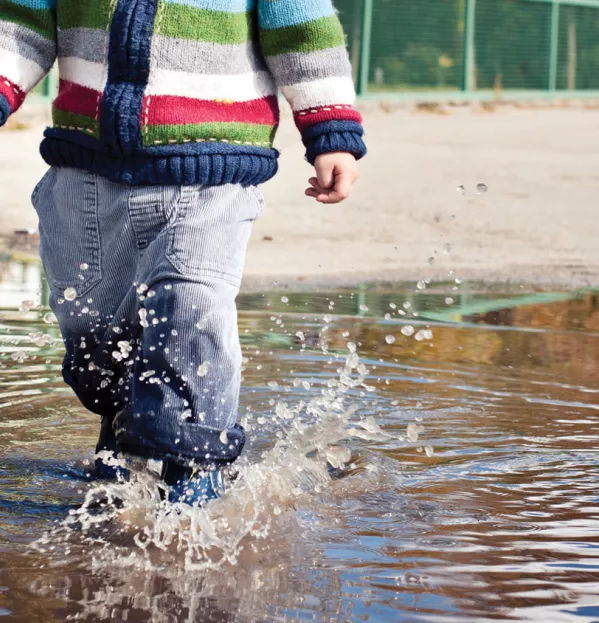There are no words in the primary school lexicon less welcome than “wet break”. (Except, perhaps, “Ms Rose, I can’t stop scratching my head.”) Given the amount of rain we enjoy in this country, you could be forgiven for assuming we’d be a bit more stoic. Since coming to work in a primary school, however, that “rainy day feeling” has taken on a whole new meaning. I’m not proud of it, but I have begun to hate rain.
It’s hard to say why wet breaks cause such euphoria among the children. Perhaps it’s the heady sense of freedom they experience from being indoors without a teacher’s scrutiny.
Perhaps it’s the thought of splashing in puddles. Perhaps it’s imagining that the wind might propel the rain at the precise angle necessary to break through the defence of the ageing window sealant and wash all the jotters away, rendering written work impossible for years to come.
Whatever causes it, I have come to realise that rainy afternoons are right at the top of the “when not to teach difficult things” list, alongside full moons, rounds of flu vaccines and a full day either side of any accidental mention of Christmas.
‘Rainy afternoons are right at the top of the “when not to teach difficult things” list’
If there’s ever a time for mild-mannered, polite children to try new profanities for size, or to experiment with unplumbing the sinks in the girls’ bathroom, it’ll be at the end of an indoor break.
I recently returned to my classroom after a wet lunch to find the air charged with this very particular energy, which is not, needless to say, conducive to wrestling apostrophes into their correct places. I confess that I’m still learning that most important of lessons for educators: when to give up for the day.
But I was battling on in vain - smile somewhat fixed - explaining (again) that plurals don’t need apostrophes, when I noticed a girl staring wistfully out of the window at the storm.
With a sigh, and a quick calculation of how many days were left until the holidays, I went to check on her progress. She turned with a smile and said, “Hey, Ms Rose. Isn’t this perfect weather for curling up and reading?”
She was right, of course. Rainy days are made for two things - splashing in puddles and cosying up with a good book - and in the absence of sensible footwear, we opted for the latter.
Apostrophes abandoned, we rationed out blankets and cushions, even a few torches for the classroom’s darkest corners, and spent the rest of the afternoon in blissful peace, Horrid Henrys and Harry Potters interrupted only by the rain battering on the windows.
I have a new rule. No matter how neatly planned my schedule, no matter how determined I am to get things done, I don’t fight the rain.
Joanna Rose is a P4 teacher in Dundee
